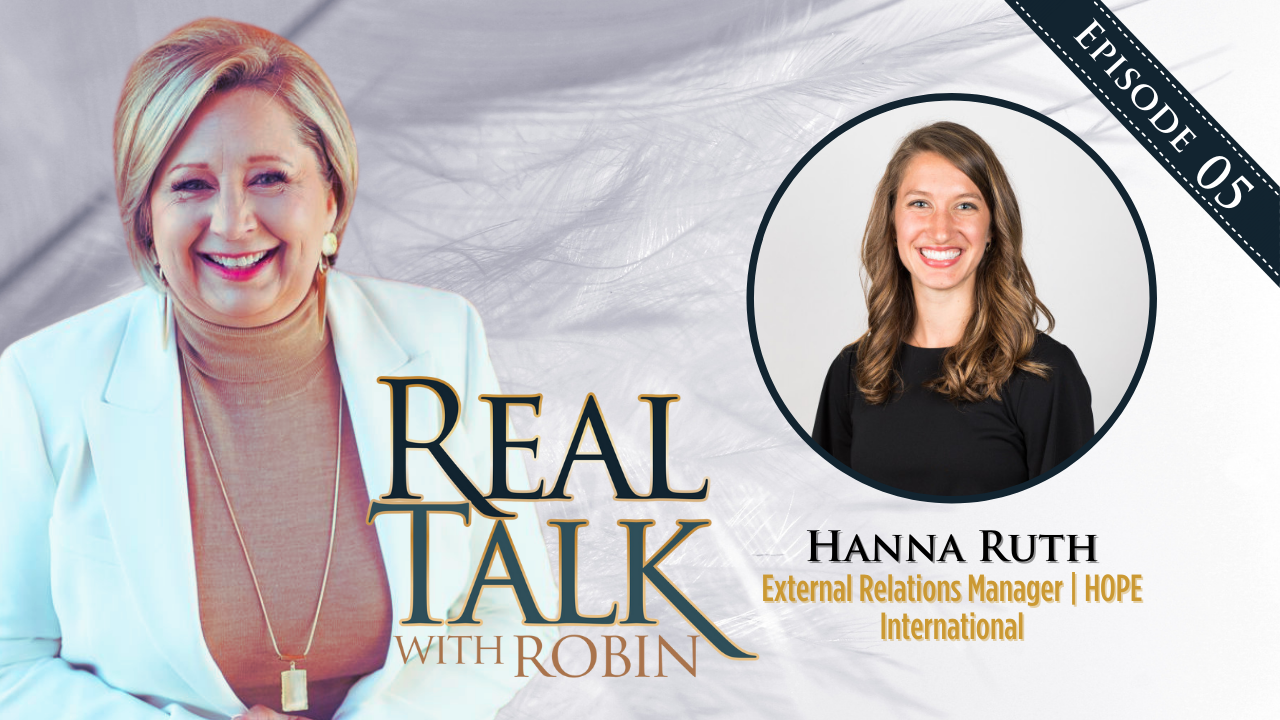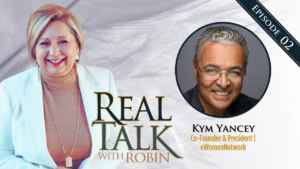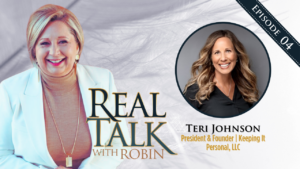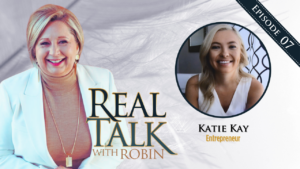The world faces the real challenge of poverty. News all around the world provides a heartbreaking picture of destitution that we have never seen before. But there is hope! Women and families have benefited from the provisions and support of HOPE International. As the External Relations Manager, Hanna Ruth provides us with an overview of how HOPE serves families to have a stable future and how they build trust as a group within the group. She also talks about how spiritual formation, as the central component of the organization, has made this endeavor a success. Don’t miss out on today’s episode!
“Every single person has been gifted by God with talents and with abilities. And so we want to provide a hand up rather than a hand out to families.” -Hanna Ruth
Highlights:
01:41 Helping Women be Self-Sufficient
04:31 The Faith Component in Business
07:24 Empower Women
13:32 Give Hope
Resources
Book
Empower women, empower the world! Find out what hope is there for women and families as Robin interviews Hanna Ruth, the External Relations Manager at @HOPEtweets. #realtalk #podcast #hope #HOPEInt’l #womenempoowerment #entrepreneurs #trust… Share on X
Quotes:
06:11 “Having someone in a community of people that are cheering you on, supporting you, and investing in your whole life, success, and progress is something that we care a lot about.” -Hanna Ruth
07:47 “Every single person has been gifted by God with talents and with abilities. And so we want to provide a hand up rather than a hand out to families.” -Hanna Ruth
08:28 “Empowering women to be the best version of themselves, their businesses, and in their whole life, is instrumental and has these rippling effects on our communities.” -Hanna Ruth
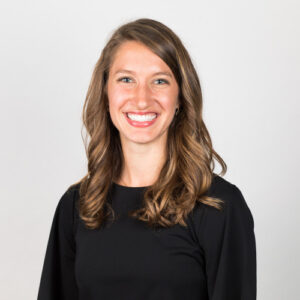
Meet Hanna:
Hanna Ruth serves as the External Relations Manager at HOPE International, a global Christ-centered economic development organization investing in families in 16 countries. A part of HOPE International’s staff since 2012, Hanna is passionate about equipping women and men to be change agents in their communities. She received a Master’s in Public Policy from the University of Minnesota and B.A. in Politics and Sociology from Messiah University. Hanna lives in Philadelphia, PA with her husband and son.
Connect with HOPE International:
Transcriptions:
Robin Edgar: Welcome to Real Talk with Robin. Today, I’m excited to have Hanna Ruth here. She is with Hope International. I got connected to Hope International a few years ago through one of my friends. And I’ve always been interested in mission work. I’ve done a lot of volunteer work. And so I was really intrigued when I met Hannah and their group, and how they were doing mission work so different out there in the world. All of us have kind of a perception of what we think mission work is and how it’s done. But I’m excited to have Hannah Ruth here today. Hannah, thank you so much for joining me.
Hanna Ruth: Thanks, Robin. It’s great to be with you today.
Robin Edgar: Yes. So let’s start off with talking a little bit about how Hope International helps so many people around the world, and how they do that and what they do that’s so different and it really has this huge tie in which I really love to helping people build a business and support themselves, which I think is just the end all be all for how we can really help motivate, especially women to be self-sufficient.
Hanna Ruth: Sure, yeah. Well, I’ve had the privilege of being part of Hope International staff for almost nine years. And we’re an organization that’s really passionate about investing in entrepreneurs around the world, in underserved communities. And so many of the entrepreneurs that we serve are running small businesses, in their communities, in their context, but many of them are facing the realities of poverty. And so this is an opportunity for us as an organization to do missions and to help families grow and pursue a stable future for their family in a really different way than what you might think of as traditional ways of approaching poverty alleviation. So our work really started about 25 years ago when a pastor and a community in Pennsylvania started a relationship with a community in Ukraine that was facing real challenges of poverty. And so they started with handouts of saying, Okay, this community might need clothes or medical supplies. The things that we might think of as a sort of initial charitable gifts for our community. But a few years into that relationship, the pastor of the local church in Ukraine said, you know, we actually have local entrepreneurs at this point who are running a small grocery store or a clothing shop, and when you drop off stuff for free, even though that’s well intentioned, you’re actually having a detrimental impact on their community, and stunting the growth of entrepreneurs that would otherwise like to grow their businesses as a way to provide for their families. So that was really the genesis of hope, and our work about 25 years ago. And so we started with this micro finance model of saying, let’s think about a different way of investing in communities. And so for us, that looks like investing in entrepreneurs through business training, through access to capital and loans, through access to a savings account, and then we really believe in holistic transformation and so discipleship and spiritual formation is part of our work as well.
Robin Edgar: That was what was so intriguing to me as you know a lot of churches and a lot of organizations do a lot of mission work, and they send people around the world to do these things. And I think those organizations when the people are there, you know, there is a sense of the faith and all of that. But what happens when people go home is it isn’t formalized, there isn’t maybe the church or organization or somebody leading that kind of faith charge. And that’s really a role that Hope is taken very seriously, and is only sets up when that is really allowed to happen. Talk to me a little bit more about that, because I think that not only the business model that you’re using, but actually that faith component has impacted the women and the people and the children in these communities that you work more profoundly than than anything else that’s ever probably been brought to their community in the past.
Hanna Ruth: Yeah. But thanks for sharing that, Robin. I think something that’s really distinct about the approach of Hopes work is that we really rely on our local staff members in the field. So Hope currently is working in 16 different countries around the world. And we serve about a million individuals actively right now. So it’s a really broad network of entrepreneurs and hard working women and men that we’re investing in. But all of our staff around the world in those 16 countries are local to the context where we serve. So in Congo, all of our loan officers and staff members are Congolese. In Haiti, all of our staff members are Haitian. And so when we talk about discipleship and connection to the local church, that’s able to happen in a really consistent and long lasting way, because the staff members that are implementing Hope’s work and, and lending to clients and investing in their businesses and walking alongside them, are members of the community, their neighbors, they are local to the context in which we work. So I think that’s really distinctive. And the other thing that I’ll share about how spiritual formation happens in our work is that essentially entrepreneurs are part of a solidarity group of another 15 or 20 entrepreneurs in their community that also have small loans and are growing their businesses. And as a part of their bi weekly meetings, a few things happen, so there’s discipleship that happens, there’s business training, there’s a time to really problem solving their businesses and say, What’s going well? How can we improve? Are there areas for collaboration or learning from one another? And there’s a chance to just share about real life, you know, to pray with one another to talk through challenges that they face. So having that kind of holistic approach of realizing for any one of us as professionals, as parents, as business owners, you know, having someone in a community of people that are really cheering you on, and supporting and investing in your whole life, success, and progress forward is something that we really care a lot about.
“Having someone in a community of people that are cheering you on, supporting you, and investing in your whole life, success, and progress is something that we care a lot about.” -Hanna Ruth
Robin Edgar: Well, and I think that’s the buy in from the community, because in your micro finance programs, you actually, they have to come to the group meetings, they have to make payments, they have to pay the loans back. And then as they pay those back that, you know, that allows for more people to get loans and for that to grow. I just had Teri Johnson from Refine and Keeping It Personal on right before you on my podcast. And I know I introduce you to the Refined community there at Minneapolis, and that organization has been a big supporter of Hope International, because it’s about women. It’s about business. It’s about faith. And it’s about being okay with talking about all of those things together. So I know that Refine relationship has been, you know, really important to you guys, and to the Refine members to really see how this same way of doing business and coming together is happening not only just in the US, but around the world through hope International.
“Every single person has been gifted by God with talents and with abilities. And so we want to provide a hand up rather than a hand out to families.” -Hanna Ruth
Hanna Ruth: Yeah. Absolutely. Well, it’s something that connects with Refine’s mission, as well as just seeing the capacity and the potential of every single person, women and men, you know, so whether that’s in our cities and neighborhoods here, or in a remote community in India, or in rural Burundi, I think, something that’s so fundamental to hope internationals work and approach is saying that every single person has been gifted by God with talents and with abilities. And so something we say often is we want to provide a hand up rather than a hand out to families and we serve so many women and hardworking moms around the world of believing that, you know, investing in women’s professional opportunities, and just the chance to own and run a small business, especially for those facing the realities of poverty has so many rippling effects for their family, you know, we see that if a mom or a woman is able to work and have a stable income, in her context, in her community, that children are more likely to stay in school to receive better nutrition, to have stable housing. And so similar to Refine saying, empowering women to be their fullest selves, and the best version of themselves, their businesses and in their home life, is instrumental and has these rippling effects to our communities. The same is also true around the world and the context where we serve as hosts.
“Empowering women to be the best version of themselves, their businesses, and in their whole life, is instrumental and has these rippling effects on our communities.” -Hanna Ruth
Robin Edgar: It is so important. And the message no matter who is hearing this message right now, I think they can definitely relate. They have been a woman that struggled, they know women that have struggled. And we know that women are really, you know, the mothers and the women in the world are the leaders in the communities. And I really applaud Hope for recognizing that, and not taking it to the founding fathers of a community, but right to the people that are going to be there and make sure that everybody in the community is successful that’s just a blessing. As we wrap up here, I’ve got my book here Beyond Your Wildest Dreams. And the first book is a little bit of a takeoff of how I feel about Hope International and the stories and about a woman that goes on a mission trip and realizes the importance of giving a hand up instead of a handout. So I know you have women that have that experience. Tell us a story of a woman in Dominican Republic that has done kind of what I’m sharing in my book.
Hanna Ruth: Yeah. It was so exciting, just encouraging to me Robin to hear about the 100 Beyond Your Wildest Dreams then and this narrative and really compelling story that you’ve written. So thanks for the work and the effort that you’ve put into share that story with us. So I would love to share sort of a parallel story of one of the entrepreneurs named Yaskeena, who we serve in the Dominican Republic. And so Yaskeena is a mother of three and backtrack a few years, right after the birth of her first son, she and her husband were facing some financial hardship. And her husband faced unemployment for a while Yaskeena was actually pursuing medical training at the time. And so she decided, like a lot of hard working moms who might pick up a side hustle to receive a small loan from Esperanza, our partner in the Dominican Republic in order to start a small business to support her family, her new son, and be able to provide some stability through her husband’s unemployment. And so she received a first loan from Esperanza for $227. So when we think about the impact of our donations to Hope, $227, she was able to start what was first a hair salon. And so she invested that money in buying a commercial hairdryer and a big tub for, you know, hair washing, some shampoo and conditioner, all the supplies she needed. And within six months, along with the solidarity group that I talked about, she repaid that loan and was able to take out a second loan for $335 that time. And so you see that as clients that we serve, you know, repay loans on time, they just build trust with the group and are able to access more and more capital to slowly grow their businesses. And so in the second loan, she decided to use her skills from a childhood of being able to saw and so she bought a sewing machine and started to sew curtains and sheets, and just home goods that people in her community needed. And so what’s really inspiring about her story is that she along with the solidarity group was able to have the side businesses, both the hair salon and the sewing business that really provided stability for her family. And they now have three children. And so as her husband’s been able to go back to work as well, she’s been running these two small businesses, in addition to providing that stability and pursuing her medical training. And so now in getting a recent update from Yaskeena, what’s really neat is that she now just has a sewing business, she saws clothes to the hair salon, in order to devote more time to her medical training, but now she has the margin to provide medical access and maternal care to those in her neighborhood. And so it’s incredible to see, you know, a woman who has sacrificed so much in order to provide for her own family but also to pursue her dreams of being able to serve others through access to good medical care. And so I just want to encourage you that some of you listening to this, you know, maybe in this situation whereas a hard-working mom, you’re putting a lot on the line or running a small business or a side hustle, you know, to pursue a dream or to provide for your family, and just encourage you that other moms like Yaskeena, the Dominican are doing the same, and just want to thank you, Robin, for investing in Hope’s work and moms like Yaskeena knowing that donations to Hope are directly investing in entrepreneurs and the clients that we serve around the world.
Robin Edgar: That is such a wonderful story. And I just want people to think about $227. And I know some of you listening, you know, that may seem like a lot of money, and it is a lot of money but the impact that you’ve made on an entire family and an entire community for such a small investment, I would just ask people to consider making a donation to Hope. How do they do that? What’s your website? And how can people make a donation if they feel inclined to do that this morning?
Hanna Ruth: Sure. It’s so encouraging Robin. Thanks for inviting people to join us in this work. So you can learn more about our organization at hopeinternational.org just www.hopeinternational.org. There’s a lot of great information about our microfinance work, about discipleship and how we’re doing this work around the world, and a lot of other client’s stories like Yaskeena’s. So you can learn more about our work there, we have some beautiful videos that tell the story of entrepreneurs that we’re investing in. There are also opportunities to donate and be involved there. So encourage you to visit hopeinternational.org.
Robin Edgar: Thank you so much for being here today, Hannah, it’s meant a lot for you to take the time to be on one of my first podcasts. I love the work that Hope is doing. And I just want to encourage people to really ask questions and be generous, as I talked about in one of my earlier podcasts that you get back tenfold of what you give. And Hope is definitely if you look at the traction they’re getting and the amount of return they’re getting for a small amount of money. They are definitely an organization that you can rely on that your donation of any size will be magnified tenfold for sure. So thank you so much for joining us today, Hannah, and I appreciate your time.
Hanna Ruth: Thanks so much, Robin. Thanks for having me and for all of the inspiring work that you’re doing as well. Thanks for creating space for these great conversations.
Robin Edgar: Thank you so much. Have a great day.
